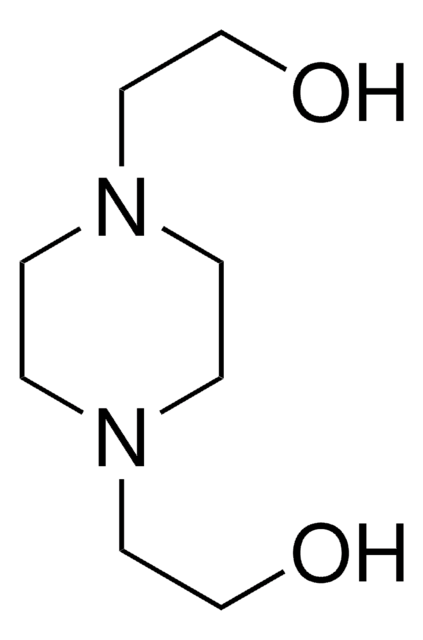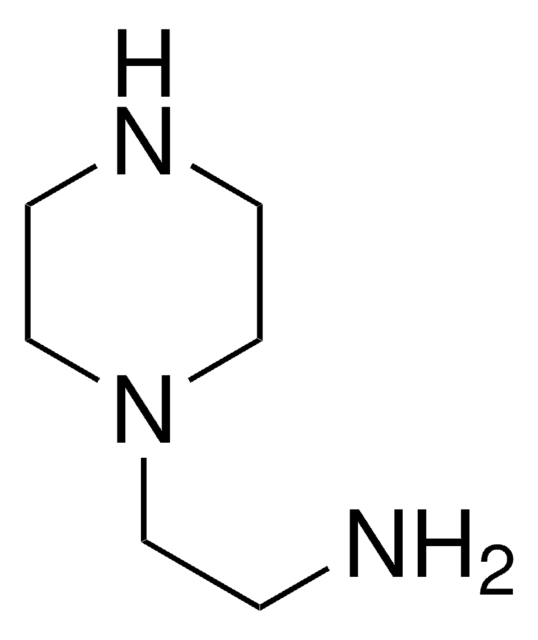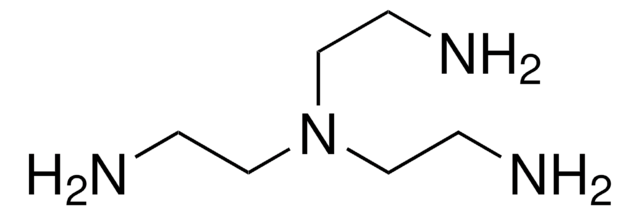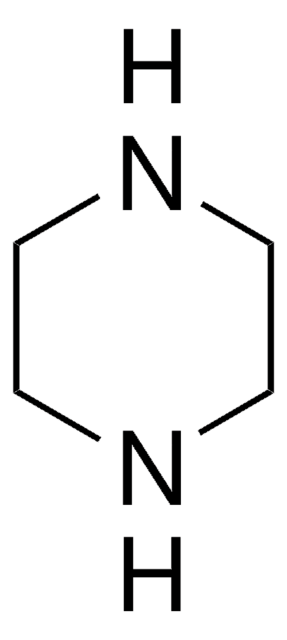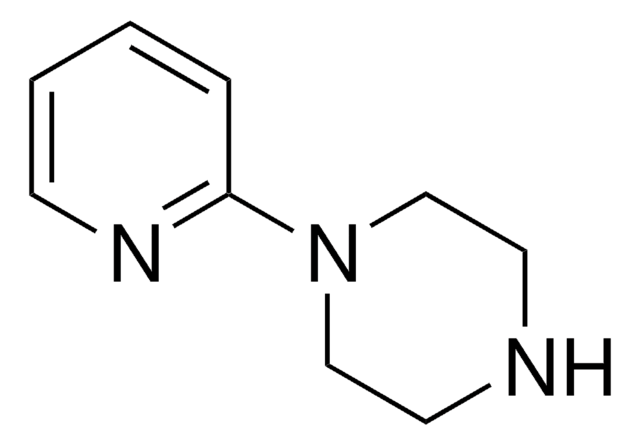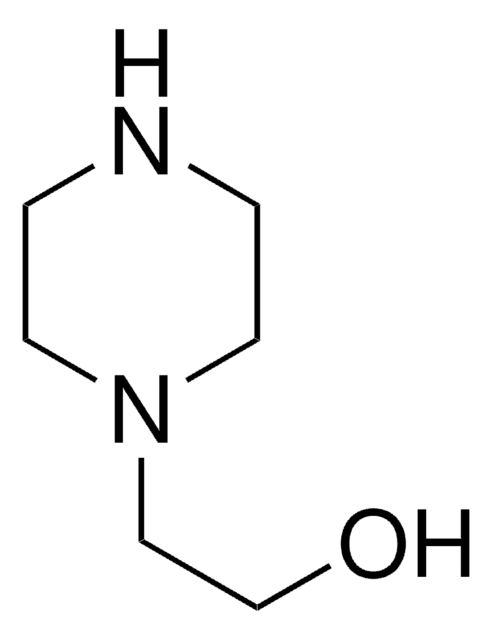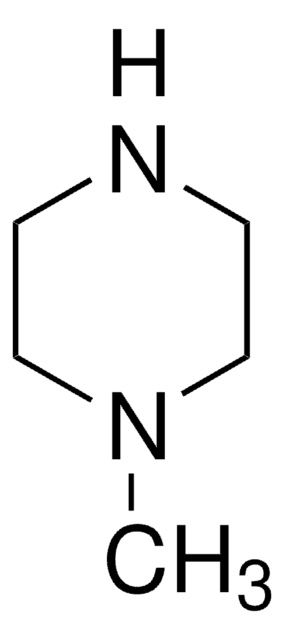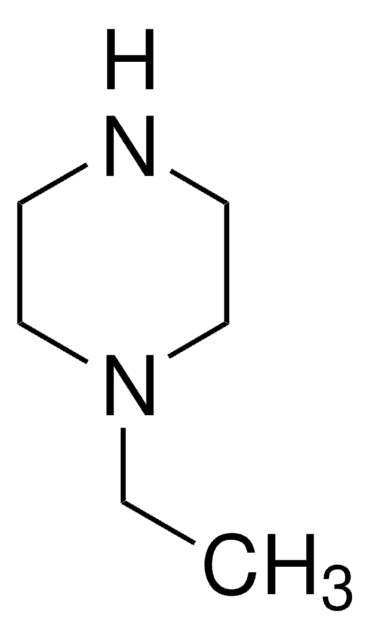239488
1,4-Bis(3-aminopropyl)piperazine
≥99%
Synonym(s):
1,4-(3-Aminopropyl)piperazine, 1,4-Piperazinebis(propylamine), 1,4-Piperazinedipropylamine, N,N′-Bis(γ-aminopropyl)piperazine, N,N′-Bis(3-aminopropyl)piperazine, [3-[4-(3-Aminopropyl)piperazin-1-yl]propyl]amine
About This Item
Recommended Products
vapor density
6.9 (vs air)
Quality Level
Assay
≥99%
form
liquid
refractive index
n20/D 1.502 (lit.)
bp
150-152 °C/2 mmHg (lit.)
mp
15 °C (lit.)
density
0.973 g/mL at 25 °C (lit.)
functional group
amine
SMILES string
NCCCN1CCN(CCCN)CC1
InChI
1S/C10H24N4/c11-3-1-5-13-7-9-14(10-8-13)6-2-4-12/h1-12H2
InChI key
XUSNPFGLKGCWGN-UHFFFAOYSA-N
Gene Information
rat ... Grin2a(24409)
Looking for similar products? Visit Product Comparison Guide
General description
Application
Signal Word
Danger
Hazard Statements
Precautionary Statements
Hazard Classifications
Eye Dam. 1 - Skin Corr. 1B
Storage Class Code
8A - Combustible corrosive hazardous materials
WGK
WGK 3
Flash Point(F)
325.4 °F - closed cup
Flash Point(C)
163 °C - closed cup
Personal Protective Equipment
Choose from one of the most recent versions:
Already Own This Product?
Find documentation for the products that you have recently purchased in the Document Library.
Our team of scientists has experience in all areas of research including Life Science, Material Science, Chemical Synthesis, Chromatography, Analytical and many others.
Contact Technical Service